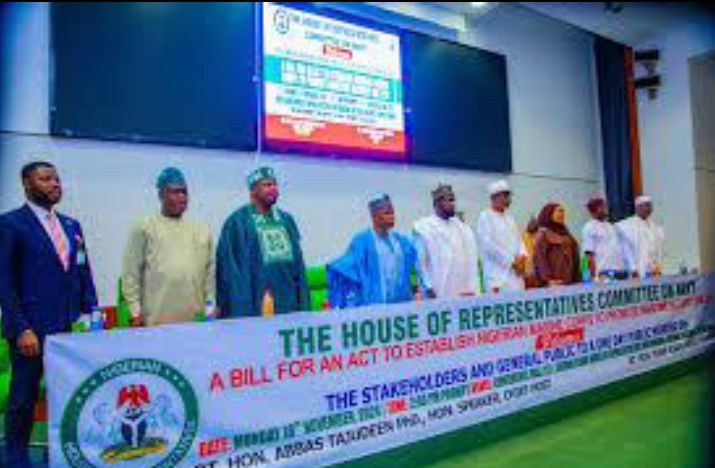A controversial proposal to create the Nigerian Marine Corps has encountered widespread opposition during a public hearing held on Monday by the House Committee on Navy.
The Bill, officially titled “A Bill for an Act to Establish Nigerian Marine Corps to Promote Maritime Security” (HB 225), aims to create a federal agency tasked with bolstering maritime security and managing Nigeria’s blue economy. Sponsored by Rep. Alex Egbona (Cross River), the Bill passed its second reading on November 30, 2023, before being referred to the committee for further consideration.
However, the proposal has drawn sharp criticism from lawmakers, security agencies, maritime stakeholders, and civil society organisations (CSOs), many of whom argue that the new agency would duplicate existing functions and impose unnecessary financial burdens on the government.
Speaking on behalf of 66 other House members, Rep. Philip Agbese, Deputy Spokesperson of the House and representative of Ado/Okpokwu/Ogbadibo Federal Constituency of Benue State, strongly opposed the Bill. He warned of operational redundancies and fiscal strain if the Marine Corps were established.
“It is our duty to scrutinise legislation to ensure it aligns with national interests and avoids creating redundant structures. This Bill is counterproductive and imposes unnecessary financial demands on the government,” Agbese stated.
He further emphasised the risks of jurisdictional conflicts and logistical inefficiencies, calling for the outright rejection of the Bill in favour of strengthening existing agencies like the Nigerian Navy and the Nigerian Maritime Administration and Safety Agency (NIMASA).
Representing the Nigeria Police Force, Superintendent Nandom Vongjen also rejected the Bill, warning that it could create unnecessary overlaps with existing maritime security responsibilities.
“The proposed Marine Corps risks proliferating maritime security outfits and creating a parallel unit of the armed forces,” Vongjen stated, urging lawmakers to enhance the capacity of current agencies instead of introducing a new one. The Nigerian Navy, represented by Rear Admiral Olusegun Ferreira, echoed this sentiment. Ferreira highlighted the Navy’s proven track record in handling maritime enforcement and defence, suggesting that resources should be optimised within the existing framework.
Other key maritime stakeholders, including the Nigerian Maritime Administration and Safety Agency (NIMASA) and the Nigerian Shippers Council (NSC), expressed similar reservations. Moji Jimoh, NIMASA’s Coordinator for the Abuja Zonal Office, and Bala Saleh, Director of Legal Services for the NSC, argued that the Bill would create bureaucratic complications and incur unnecessary costs. Strengthening existing frameworks, they said, would achieve the desired outcomes more efficiently.
Civil society groups unanimously rejected the proposal as well. Abdullahi Bilal of the Security Analysts & Research Forum in Africa and Okwa Daniel, Executive Director of the Centre for Social Justice, Equity & Transparency, described the Bill as redundant and urged its rejection during the third reading.
Chairman of the House Committee on Navy, Rep. Yusuf Gadgi, assured stakeholders that the committee would conduct a thorough and impartial review of the Bill.
“The Committee remains neutral and will ensure all views are carefully considered before making a decision,” Gadgi stated.
With mounting opposition from lawmakers, security agencies, maritime bodies, and civil society, the future of the Nigerian Marine Corps Bill appears uncertain. Critics argue that strengthening cooperation and optimising resources within existing agencies offer a more pragmatic path to enhancing maritime security and advancing Nigeria’s blue economy.
As deliberations continue, the Bill’s fate will likely hinge on whether its proponents can address these widespread concerns or if lawmakers will heed the call for rejection.
Copyright Ships & Ports Ltd. Permission to use quotations from this article is granted subject to appropriate credit given to www.shipsandports.com.ng as the source.

